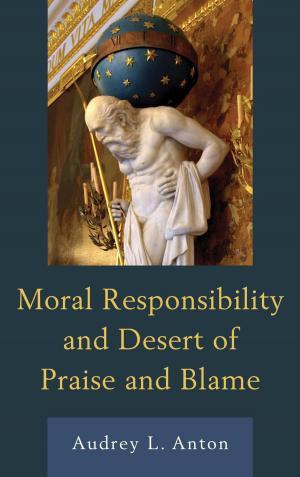Urban Reform and Sexual Vice in Progressive-Era Philadelphia
The Faithful and the Fallen
Nonfiction, History, Americas, United States, 19th Century| Author: | James H. Adams | ISBN: | 9781498508698 |
| Publisher: | Lexington Books | Publication: | July 1, 2015 |
| Imprint: | Lexington Books | Language: | English |
| Author: | James H. Adams |
| ISBN: | 9781498508698 |
| Publisher: | Lexington Books |
| Publication: | July 1, 2015 |
| Imprint: | Lexington Books |
| Language: | English |
This book examines the intersection and interplay between Progressive-Era rhetoric regarding commercialized vice and the realities of prostitution in early-twentieth-century Philadelphia. Arguing that any study of commercial sexual vice in a historical context is difficult given the paucity of evidence, this work instead focuses on reformers’ construction of a cultural view of prostitution, which Adams argues was based more upon their perceptions of the trade than on reality itself. Looking at the urban core of the city, Progressive reformers saw vice, immorality, and decay—but as they frequently had little face-to-face interaction with prostitutes plying their trade, they were forced to construct culturally fueled archetypes to explain what they believed they saw. Ultimately, reformers in Philadelphia were battling against a rhetorical creation of their own design, and any study of anti-vice reform in the early twentieth century tells us more about the relationship between activists and the government than it does about vice itself.
This book examines the intersection and interplay between Progressive-Era rhetoric regarding commercialized vice and the realities of prostitution in early-twentieth-century Philadelphia. Arguing that any study of commercial sexual vice in a historical context is difficult given the paucity of evidence, this work instead focuses on reformers’ construction of a cultural view of prostitution, which Adams argues was based more upon their perceptions of the trade than on reality itself. Looking at the urban core of the city, Progressive reformers saw vice, immorality, and decay—but as they frequently had little face-to-face interaction with prostitutes plying their trade, they were forced to construct culturally fueled archetypes to explain what they believed they saw. Ultimately, reformers in Philadelphia were battling against a rhetorical creation of their own design, and any study of anti-vice reform in the early twentieth century tells us more about the relationship between activists and the government than it does about vice itself.















